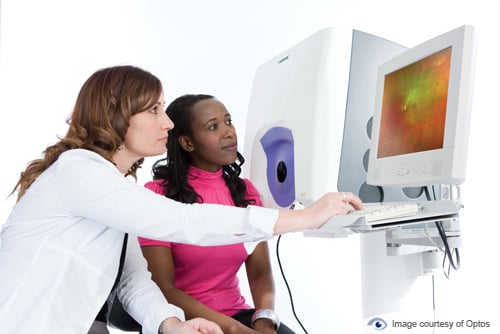According to Retina Today, results from the National Assessment of Adult Literacy determined that more than 75 million Americans possess rudimentary or lower skills in health literacy. This indicates that improved doctor-patient relationships are important for better outcomes in all health conditions –especially with retinal disease diagnoses.
When you work to educate your patients objectively about their condition, you’re encouraging them to work collaboratively to improve their eye health and maximize treatment options for retinal disease. This is achieved by discussing all available treatments, possible side effects, as well as the therapeutic response expected and the establishment of a timeline for the response to be attained. It’s also worth acknowledging that there may not be one single course of action that will deliver the expected outcome. In taking the time to speak to patients candidly, you’re building the trust that’s essential for a solid doctor-patient relationship. Furthermore, you are also removing unrealistic outcomes. This allows the patient’s expectations to become more aligned with what you deem appropriate.
As an eye care professional, most of the published literature available on retinal disease and its possible treatments is based on case studies and interviews about what led up to the condition. While the information is invaluable to you as a treating physician, they will do little to help your patients understand the chronic nature of retinal disease and the importance of monitoring each course of action, which includes changing treatment options when necessary. By opening up discussion and being transparent with your patients, you will in essence become a trusted resource upon which patients will base their decisions. This will lead to a better outcome for everyone involved.

Our ultra-widefield technology can help you strengthen your doctor-patient relationships. While providing you with the ability for early detection of retinal disease and other systemic issues with a wider view of the retina, the sharp images our devices capture can be used immediately as a teaching tool to show your patients areas of concern. Visit our website for more information on optomap® ultra-widefield retinal exams, or contact us to speak with a representative.